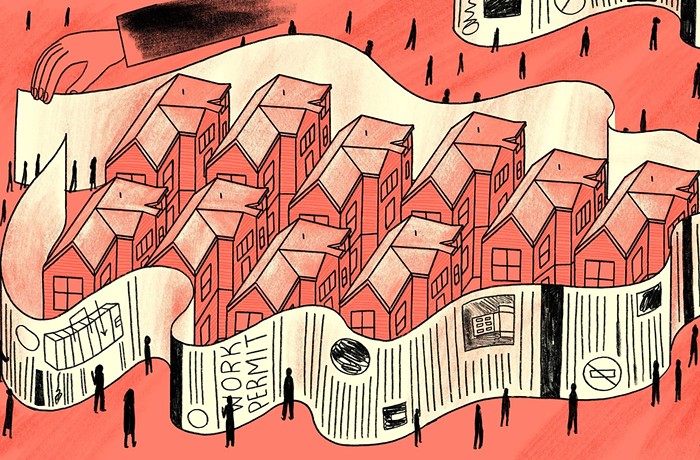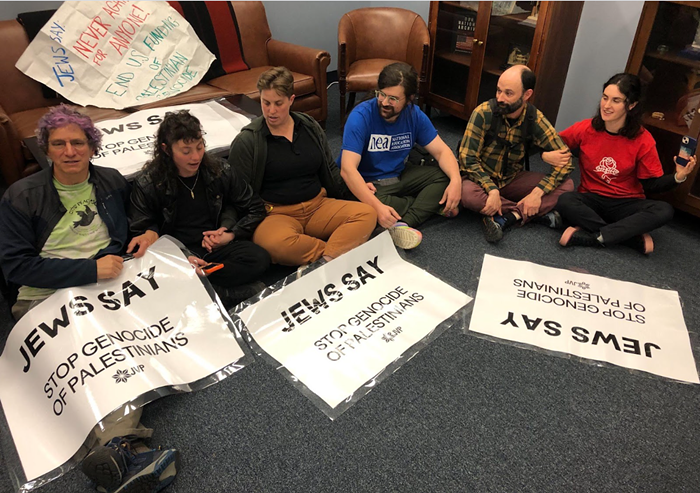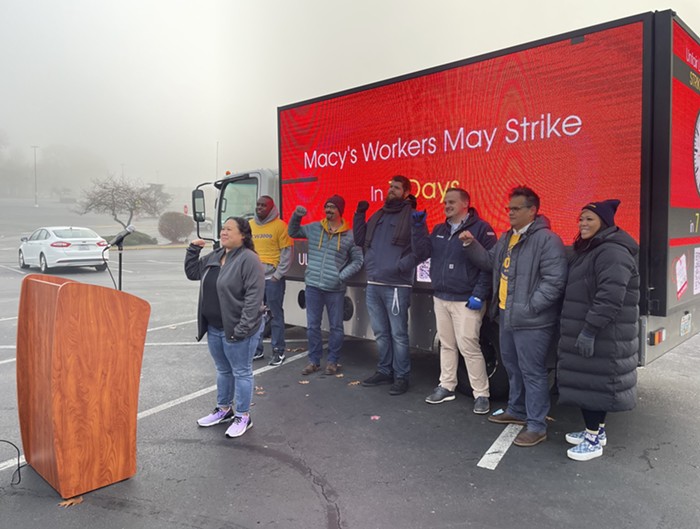Our cities can run on empty.
Pixelci / GETTY
Comments
Please wait...
Comments are closed.
Commenting on this item is available only to members of the site. You can sign in here or create an account here.




















Even better, let's make this one a progressive tax ... that tax rate shouldn't be flat, but tied to the value of the property.
Ah, the seizing of private property for public use. Yeah people get squirmy when you throw that into the mix.
@3, there’s some lit out there how this worked in other cities. Seems to successfully raise revenue, with impact to housing market small to nil. Perhaps revenue is the core purpose, but the other questions you raise are sticky and could backfire on the revenue plan if not addressed properly. The City could also lose that revenue to lawsuits in a short period of time.
"In 2018, a Seattle City Council task force identified an empty homes levy as a funding source to address homelessness."
This is a bit of a stretch. Appendix C of the report contains a single sentence stating Seattle "should consider ways to tax the following . . . vacant or unoccupied property." The report does not so much as speculate regarding the number of such properties within city limits, or the potential revenue that could be generated.
An even better solution is to end all design review on 65 foot or less MFH in all areas of Seattle and restore the pre-1933 zoning to all artificially created SFH zones that were imposed for racist reasons.
Just build more housing.
"in proportion to the total number of units a realty holds statewide"
I own several houses. All but the one I occupy at this moment are 'empty'. But they are not for rent. Nor are they held by a realty (or other property management organization). Should I get a sudden urge for a change in scenery, I will unoccupy this one and move into another.
"Wherever they’re headquartered, real estate firms are anchored in Seattle by their apartments, by their homes, by their tiny apartments and condos. They aren’t going anywhere."
You do know that there are a number of real estate firms that just don't do business inside the Seattle city limits? Some that I have dealt with. You're looking for a cute, hipster, Craftsman style bungalow? Keep moving. Not their market. You want a couple of waterfront acres and the ability to flip Bill Gates the finger every morning on your way to work driving by his house? Go see them. They have a nice portfolio.
@4: "The City could also lose that revenue to lawsuits in a short period of time."
They could also lose the housing. If it isn't in the owner's best interest to rent or sell at this moment, they could become bulldozer food. Property with "rental quality" housing (not always the creme of the crop) sitting on it is often worth more as an empty lot. Tax it and that will just happen faster.
According to the link in the story, about 3/4 of the "vacant homes" ae empty because they are preparing to rent, under repair, or a number of other good reasons. Planning to tax people for fixing houses? The mythical "vacant houses held by speculating hedge funds" are not much of a thing here.
@14 is exactly right. If the City wants to make housing something that is provided as a right to all, without regard to what it costs to provide said housing, then the City needs to pay for it. Trying to force landlords to take on enormous financial risks and turning their investments in housing into unprofitable losers will only drive rental housing off the market. There is enough demand for owner-occupied houses here that every rental in the city could probably be sold to someone who wants to live there in a month.
The reality is that as long as we have limited land and building codes that don't allow things like the old SROs, the market is never going to be able to provide dirt-cheap housing. No amount of regulations on landlords will change that. If we want to provide cheap housing, it's going to have to be public.
Holy Moses! We already tax the living hell out of real estate. Now comes the "half wit" idea of a vacancy tax.
Why not work on something productive. Say like rounding up the dipsos, druggies, homeless and putting them to work cleaning up the parks they have befouled or any other manner of meaningful contribution, thus reducing the budget deficit.
5,000 homeless vagrants x 2000 hours x $18.69 = $186,900,000 ...yes, that's millions @ min wage
Why stop at vacant homes? There are plenty of underutilized homes and apartments throughout the city as well. If an older or single homeowner is living in a 3 bedroom home and only using one we should tax them or better yet just force them to accept boarders because after all Shaun and the other progressive, urbanists know better how to utilize that property for the common good than the owner of said property. We could end homelessness tomorrow so clearly the common good outweighs pesky things like constitutional rights.
Seriously though why does every solution proposed by Shaun and his fellow urbanists involve taking from others? It’s such fixed mindset thinking and only highlights how lucky we are that such a narrow minded person was not elected to the SCC back in 2019. Hopefully Shaun comes out with more myopic proposals to continually remind people why he is a poor choice to help solve problems in Seattle ahead of his probable announcement that he is running again next year.
@18: “Seriously though why does every solution proposed by Shaun and his fellow urbanists involve taking from others?”
And it’s not just who they want to take from, but who they want to give it to. After five and a half continuous decades of negative or very slow growth, Seattle’s population exploded after 2015, adding a number of persons equal to the entire population of Bellevue (!) in just a few years. Although housing construction had already been at Seattle’s all-time record pace, this influx seriously strained the housing market, displacing persons who had lived, worked, and contributed to Seattle for decades.
Instead of focusing our resources on helping them, Shaun &c. have relentlessly demanded we shower resources on the homeless population, which started arriving en masse at the same time the housed population exploded. These demands were originally bolstered by the Big Lie equating these two populations (see “”Amazon Tax”), but as very few voters still believe that anymore, Shaun simply ignores the displaced and focuses on the hard-core homeless.
But that population can’t benefit from housing until their mental disorders, including the roots of drug addiction, are recognized and addressed; that would cost too much, so he just pretends those problems simply don’t exist. So, he’s proposing Seattle tax something it needs, and deliver the results to a population which cannot even use it. This policy can only fail, and fail completely, even on its own terms.
And, as you note, I’m sure the Stranger will continue to deliver more such failures, as much as they possibly can.
@20:”…act as a cudgel for slumlord types who sit and let properties just decay.”
But it could easily have the opposite effect, encouraging rentals to sketchy tenants, who then degrade the properties at a much faster rate than good tenants (or no tenants) might.
“You don't get to drive a car that has bad brakes…”
If you own the racetrack, the only entity which will care is your insurance company, who can refuse to pay out for an accident due to brake failure.
“You don't get to build explosives on your property because you own the chemicals and the lot.”
Again, if you own land sufficient so the resultant explosions do not harm or disturb anyone else, then no one will care. (You’d likely still need permits to buy, store, and dispose of all chemicals in a safe manner.)
We’re not talking about a situation where vacant properties are causing homelessness; as noted above, this is a situation where confiscatory rules are being fabricated so as not to solve an unrelated problem.
Finally, D.C. is not a state, nor does it have an economy with a basis like either Seattle or Washington.
Y’all are really overestimating the number of such vacant properties and therefore the possibility that “freeing” them up will move the needle on affordability. Maybe a little revenue stream at most, but a risky one that will also require investments to enforce. Not much juice for the squeeze, and scheming about for new revenue streams and ways to extort obedience from housing suppliers (which you also want to solve our affordability ills) isn’t a great look.
Sure, but let landlords rent to whomever they choose, not the automatically to the first person who qualifies.
Stupid people love stupid ideas.